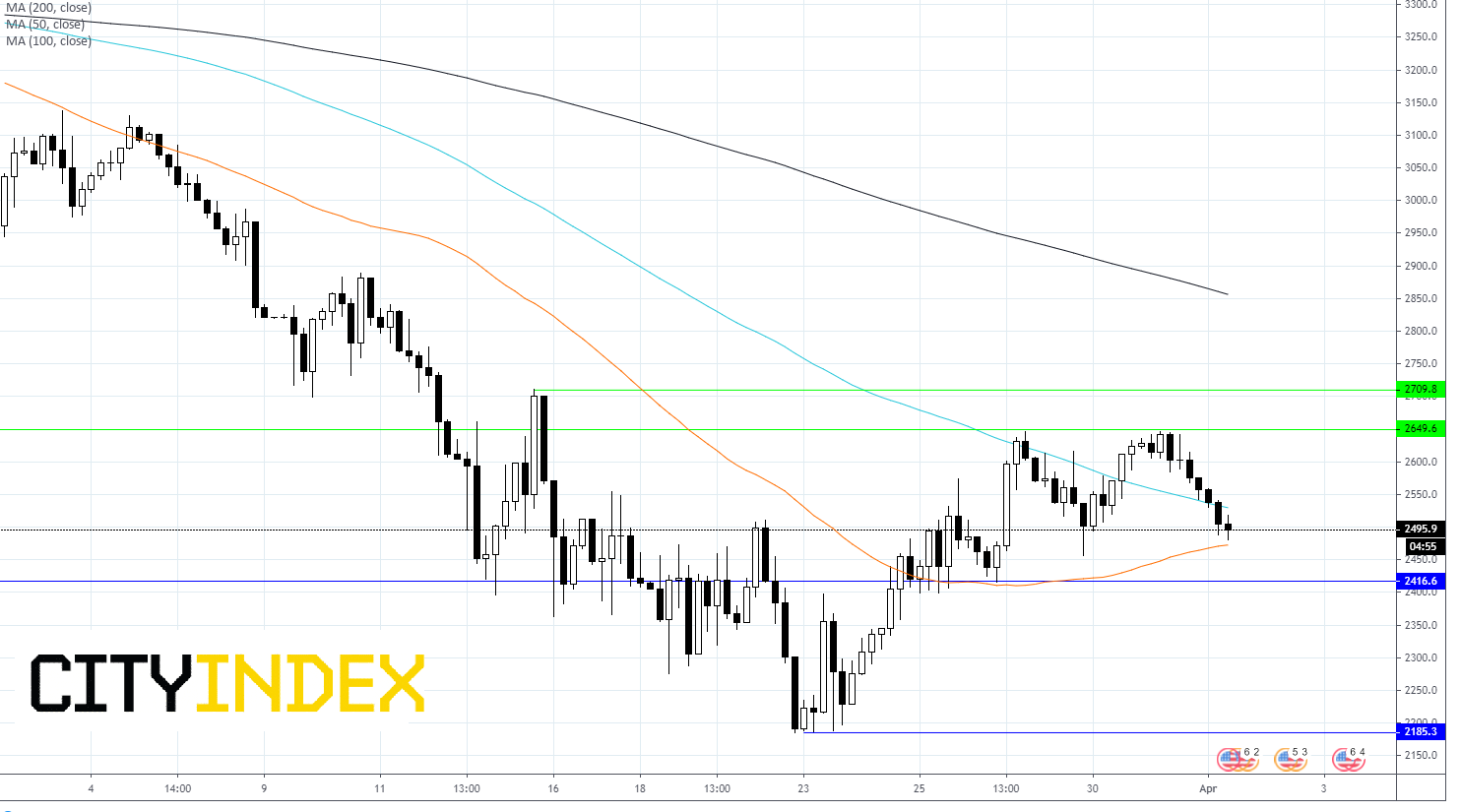The direction of markets will likely depend on a series of economic and earnings numbers, reports Fiona Cincotta.
The S&P shed 20% across the previous quarter, with the vast majority of those losses being accrued in the last six weeks of the quarter. Losses stacked up as Coronavirus outbreak spread beyond China’s borders into Europe and the United States. The S&P 500’s 11-year bull market came to a crashing end.
The S&P did pick up off its recent low of 2184 following unlimited QE from the Fed and a $2 trillion rescue package from the U.S. Senate. However, the advance has stalled as the very measures being implemented to stop the spread of the virus are causing demand for goods and services to evaporate. Business are struggling and staff are being laid off to cut costs.
Coronavirus fears are starting to turn into figures. President Trump warned that between 11,000 – 240,000 Americans could die as a result of the Coronavirus, despite social distancing measures and in some cases complete lock down restricting the spread of Coronavirus
Today’s ADP private payroll showed 27,000 jobs were lost, while initial jobless claims last week hit a record high of 3.3 million, eclipsing a record from 1982 of 965,000 claims. Friday’s nonfarm payrolls will make for awful reading.
And make no mistake the worst is yet to come. Look for the following areas to present remarkably weak numbers:
1. Data releases
Data is going to be awful, that much we know. A large dose of negativity is priced in. The question is whether the data will be worse than expected or not and for how long? The initial jobless claims were shockingly dreadful, more numbers like that will scare the market. Once figures start showing signs of stabilizing or even rebounding, the S&P could move meaningfully higher. However, given that the United States is only just at the start of a “very, very painful two weeks” we could be some way away from here.
2. Coronavirus numbers
The market is watching these like a hawk. The speed at which Coronavirus cases and the death toll accelerates is driving market sentiment. While Spain has recorded its largest number of daily deaths, Italy’s death toll has peaked. The United States is still very much at the beginning of the curve. A steeper curve means longer and more intense public restrictions which is worse news for the economy. The worst is yet to come here.
3. Earning Season
We’ve been so fixated on Coronavirus, that earning season has suddenly crept up on us. Q1 earning season will begin in mid-April. Needless to say, that the global pandemic is the biggest cloud over earnings season. While Q1 could see a negative impact on earnings, investors will also be watching what the outlook is for Q2 is. So far, companies have struggled to quantify the expected impact of Coronavirus, maybe this will have changed by the second half of the month?
Levels to watch
After picking up from the March 23 low of 2184, the S&P rallied 20% to a high of 2646. The price is consolidating between 2646 and around 2442. It could be worth waiting for a breakout off these levels for clues over future price action.

Fiona Cincotta is a Market Analyst for Currency Live











